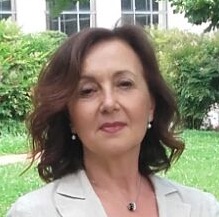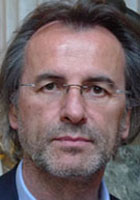Studying at the University of Verona
Here you can find information on the organisational aspects of the Programme, lecture timetables, learning activities and useful contact details for your time at the University, from enrolment to graduation.
Academic calendar
The academic calendar shows the deadlines and scheduled events that are relevant to students, teaching and technical-administrative staff of the University. Public holidays and University closures are also indicated. The academic year normally begins on 1 October each year and ends on 30 September of the following year.
Course calendar
The Academic Calendar sets out the degree programme lecture and exam timetables, as well as the relevant university closure dates..
| Period | From | To |
|---|---|---|
| Sem. IA | Oct 1, 2014 | Nov 16, 2014 |
| Sem. IB | Nov 17, 2014 | Jan 18, 2015 |
| Sem. IIA | Feb 23, 2015 | Apr 19, 2015 |
| Sem. IIB | Apr 20, 2015 | Jun 7, 2015 |
| Session | From | To |
|---|---|---|
| Sessione Estiva (Esami sospesi dal 14 al 16 luglio) | Jun 8, 2015 | Jul 31, 2015 |
| Sessione Autunnale | Sep 1, 2015 | Sep 30, 2015 |
| Sessione Invernale | Jan 18, 2016 | Feb 21, 2016 |
| Session | From | To |
|---|---|---|
| Sessione Estiva | Jul 14, 2015 | Jul 16, 2015 |
| Sessione Autunnale | Nov 10, 2015 | Nov 12, 2015 |
| Sessione Invernale | Mar 14, 2016 | Mar 17, 2016 |
| Period | From | To |
|---|---|---|
| Festa di Ognissanti | Nov 1, 2014 | Nov 1, 2014 |
| Festa dell'Immacolata Concezione | Dec 8, 2014 | Dec 8, 2014 |
| Vacanze Natalizie | Dec 22, 2014 | Jan 6, 2015 |
| Vacanze Pasquali | Apr 2, 2015 | Apr 7, 2015 |
| Festa della Liberazione | Apr 25, 2015 | Apr 25, 2015 |
| Festa dei lavoratori | May 1, 2015 | May 1, 2015 |
| Festa del S. Patrono S. Zeno | May 21, 2015 | May 21, 2015 |
| Festa della Repubblica | Jun 2, 2015 | Jun 2, 2015 |
| Vacanze Estive | Aug 10, 2015 | Aug 16, 2015 |
Exam calendar
Exam dates and rounds are managed by the relevant Humanistic Studies Teaching and Student Services Unit.
To view all the exam sessions available, please use the Exam dashboard on ESSE3.
If you forgot your login details or have problems logging in, please contact the relevant IT HelpDesk, or check the login details recovery web page.
Should you have any doubts or questions, please check the Enrollment FAQs
Academic staff
 donato.desilvestri@univr.it
donato.desilvestri@univr.it
 linda.napolitano@univr.it
linda.napolitano@univr.it
 annamaria.piussi@univr.it
annamaria.piussi@univr.it
 cristina.richieri@univr.it
cristina.richieri@univr.it
Study Plan
The Study Plan includes all modules, teaching and learning activities that each student will need to undertake during their time at the University.
Please select your Study Plan based on your enrollment year.
1° Year
| Modules | Credits | TAF | SSD |
|---|
2° Year activated in the A.Y. 2015/2016
| Modules | Credits | TAF | SSD |
|---|
| Modules | Credits | TAF | SSD |
|---|
| Modules | Credits | TAF | SSD |
|---|
| Modules | Credits | TAF | SSD |
|---|
Legend | Type of training activity (TTA)
TAF (Type of Educational Activity) All courses and activities are classified into different types of educational activities, indicated by a letter.
Sociology of Symbolic Systems (2015/2016)
Teaching code
4S00817
Teacher
Coordinator
Credits
9
Language
Italian
Scientific Disciplinary Sector (SSD)
SPS/08 - SOCIOLOGY OF CULTURE AND COMMUNICATION
Period
Sem. IA, Sem. IB
Learning outcomes
The course aims to focus on the profound changes that have affected the society in the reflexive modernity. These economic, political and cultural changes have an impact not only on the society as a whole, but especially on the biographies of individual life. Politicization of the economy, decline of the Fordism, weakening of the nation-states borders and multiculturalism are macro level processes which generate, at the micro level, a profound redefinition of the relationship individual-society and the processes of identity construction. Individualization , de-institutionalization and the pluralization of cultural systems give rise to new social configurations, in which become central the network of relationships and the dynamics of the construction of the personal network .
Program
Course programme:
A) First part: in the first part of the course, the topic of political, cultural and economic changes will be deepened from the text of A. Giddens, which highlights how the current dynamics of modernity, in particular the processes of disaggregation of social systems, impact on the concept of trust, risk and security. New social configurations (reflexive modernity) are shaping nowadays and they find in the relational approach and in the network paradigm a new way of analysis and interpretation.
B) Second part: the second part of the course will address the issue of reflexive modernity from some specific perspectives: how the job market changes affect the the mechanisms of social and systemic integration; the problem of respect in an increasingly multicultural society; how the dynamics freedom-security, belonging and individualization influence the mechanisms of 'reflexive' identities construction; how to connect the concept of space and time in the global society.
Testi per l’esame (frequentanti):
Parte generale
1. A. Giddens, Le conseguenze della modernità, Il Mulino, Bologna, 1994
2. P. Di Nicola, La rete metafora dell’appartenenza. Analisi strutturale e paradigma di rete, nuova edizione aggiornata, FrancoAngeli, Milano, 2015
Parte monografica
3. U. Beck, Il lavoro nell’epoca della fine del lavoro. Tramonto dell’intersoggettività, sicurezza e nuovo impegno civico, Einaudi, Torino, 2000
4. P. Di Nicola, Amichevolmente parlando. La costruzione di relazioni sociali in un’epoca di legami deboli, FrancoAngeli, Milano, 2002
5. J. Habermas, C. Taylor, Multiculturalismo. Lotte per il riconoscimento, Feltrinelli, Milano, 2007
6. M. Rampazi, Un posto da abitare. Dalla casa della tradizione all’incertezza dello spazio tempo globale, Led, Milano, 2014
Programma per non frequentanti
Gli studenti non frequentanti aggiungono al programma uno (per una sola parte: 4 cfu) o due (per il corso completo: 9 cfu) dei seguenti testi:
R. Castel, L’insicurezza sociale, che significa essere protetti?, Einaudi, Torino, 2004
A. Honneth, Lotte per il riconoscimento, Il Saggiatore, Milano, 2002
S. Moller Okin, Le donne e la giustizia. La famiglia come problema politico, Dedalo, Bari, 1999
M. Sandel, Giustizia. Il nostro bene comune, Feltrinelli, Milano, 2010
R. Sennett, Il rispetto. La dignità umana in un mondo di diseguali, Il Mulino, Bologna, 2004
Examination Methods
Oral exam
Type D and Type F activities
Modules not yet included
Career prospects
Module/Programme news
News for students
There you will find information, resources and services useful during your time at the University (Student’s exam record, your study plan on ESSE3, Distance Learning courses, university email account, office forms, administrative procedures, etc.). You can log into MyUnivr with your GIA login details: only in this way will you be able to receive notification of all the notices from your teachers and your secretariat via email and soon also via the Univr app.
Student mentoring
Graduation
Documents
| Title | Info File |
|---|---|
|
|
pdf, it, 99 KB, 13/10/23 |
|
|
pdf, it, 101 KB, 10/04/24 |
List of theses and work experience proposals
| theses proposals | Research area |
|---|---|
| Psicoanalisi | Psychology - Psychology, Psychoanalysis |
Gestione carriere
Linguistic training CLA
Practical information for students
Documents
| Title | Info File |
|---|---|
|
|
pdf, it, 325 KB, 02/05/23 |
|
|
pdf, it, 212 KB, 02/05/23 |
|
|
pdf, it, 131 KB, 02/05/23 |
Stage e Tirocini
Per le altre attività formative (crediti F) sono previsti 9 cfu (pari a 225 ore) da acquisire solamente attraverso l’attività di tirocinio obbligatoria, a sua volta suddivisa in:
- tirocinio indiretto (1 cfu: 25 ore di frequenza obbligatoria in università per il 75%) in preparazione dell’attività formativa sul campo;
- tirocinio diretto (8 cfu), da svolgersi presso enti convenzionati.
L’ordinamento didattico della LM in Scienze pedagogiche prevede che il tirocinio indiretto a frequenza obbligatoria si svolga in università per il 75% nel secondo anno (1 CFU: 25 ore).
Il tirocinio indiretto consiste in un accompagnamento iniziale delle/degli studenti da parte dei tutor attraverso un percorso di formazione della durata di 25 ore.
La finalità di questo percorso è quella di preparare le/gli studenti alla particolare forma di apprendimento costituita dal tirocinio, dotandoli di conoscenze e strumenti adeguati a osservare, comprendere e rielaborare criticamente l’esperienza di tirocinio nei servizi educativi e ad affrontare il tirocinio negli enti con metodo e consapevolezza.
Il percorso, da attuare in gruppi da 20-25 persone sotto la supervisione di un tutor proveniente dal mondo professionale di educatori e pedagogisti, risponde alle esigenze costantemente espresse sia dalle/dagli studenti stessi sia dalle parti sociali che dai referenti degli enti convenzionati.
Nuove Linee Guida per il tirocinio di Scienze pedagogiche.
- Tutte le informazioni in merito agli stage per futuri studenti sono disponibili alla pagina Stage e tirocini.
- Tutte le informazioni in merito agli stage per studenti iscritti sono pubblicate in MyUnivr - come fare per - stage e tirocini.
- Tutte le informazioni in merito agli stage per le aziende sono disponili alla pagina Stage e tirocini per azienze.

 0458028142
0458028142

















